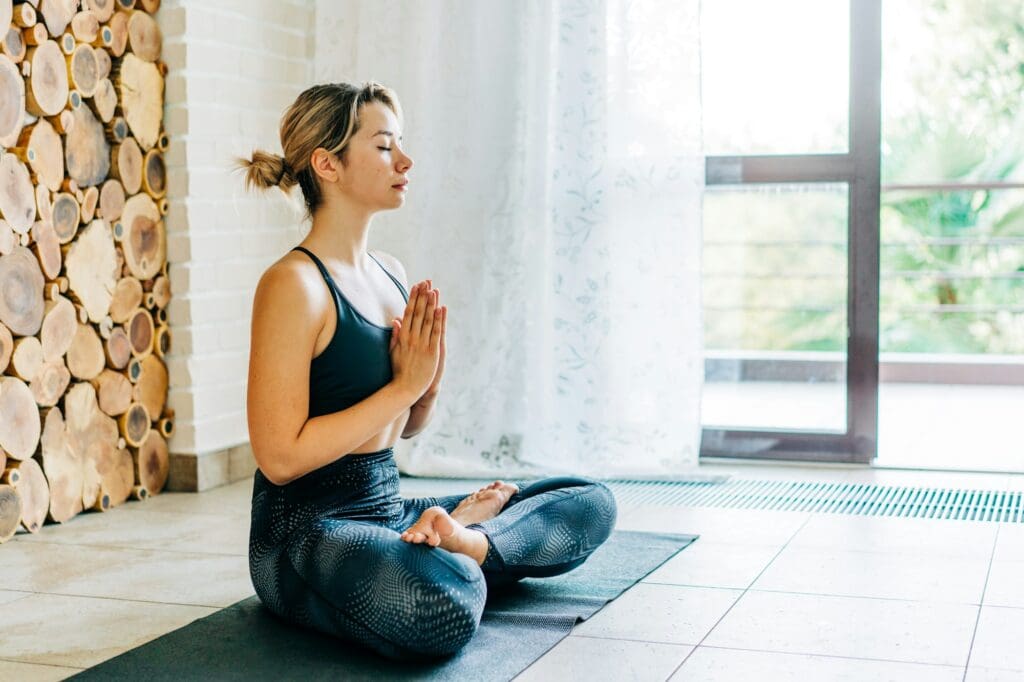


Are you looking to elevate your overall well-being and achieve a more balanced lifestyle? Integrating holistic health practices into your daily routine could be the key.
Unlike traditional health approaches that often focus on isolated symptoms, holistic health considers the whole person—mind, body, and spirit. It promotes harmony in all aspects of your life, leading to a more fulfilling and resilient existence.
As you embark on this journey, you may find yourself asking:
“What are some practical ways to incorporate holistic health into my everyday life?”
Good news! This guide is here to help you explore various strategies that can seamlessly fit into your daily activities. From mindful eating to practicing yoga, we’ve got you covered with simple yet effective methods to boost your overall well-being.

Holistic health is more than just treating symptoms—it’s about fostering a balanced and harmonious lifestyle. This approach deeply intertwines physical, mental, emotional, and spiritual well-being, acknowledging that these aspects are inseparable and influence one another.
Essentially, holistic health is an all-encompassing method that not only seeks to cure but also to prevent illness by promoting overall wellness and vitality.
By taking into consideration the whole person, holistic medicine aims to understand and address the root causes of health issues. It incorporates both conventional medicine and complementary therapies, such as yoga, acupuncture, Ayurveda, and herbal medicine.
This fusion of methods is designed to offer a more personalized and comprehensive treatment plan, tailored specifically to an individual’s unique needs.
What sets holistic health apart is its emphasis on prevention. By striving to maintain balance and harmony in all aspects of life, many individuals experience improved mental health, reduced levels of stress and anxiety, and a lower risk of chronic illness.
It’s about empowering yourself, taking proactive steps towards health, and making informed choices that contribute to your overall well-being.
Integrating holistic practices into daily life allows for a more engaged and active role in one’s health journey. This proactive approach encourages self-awareness and self-care, making it easier to detect and address potential health issues before they become serious.
Engaging regularly in activities that support holistic well-being, from mindful meditation to nourishing diets, can profoundly affect your quality of life.
In essence, holistic health is about honoring the mind-body connection and treating the whole person with clinically proven therapies. By harmonizing conventional medical treatments with alternative practices, you can create an empowering pathway to optimal health and wellness.
The journey towards holistic health is not just about healing the body; it’s about nurturing the whole self to achieve a balanced and fulfilling life.

Integrating holistic health practices into your daily routine doesn’t have to be overwhelming or time-consuming. Instead, it can be a gradual and enjoyable process that brings lasting benefits to your overall well-being.
From simple morning rituals to mindful eating and stress management techniques, there are countless ways to weave holistic health into the fabric of your everyday life.

Integrating holistic health into your physical activity routine can lead to profound benefits for your overall well-being.
Holistic health emphasizes the connection between mind, body, and spirit, so when you approach physical activity from a holistic perspective, you’re not just working on your physical fitness but also nourishing your mental and emotional health.
A great way to start incorporating holistic practices is through exercises that foster mindfulness, such as yoga, tai chi, and qigong. These activities are designed to harmonize the body and mind, improving flexibility, strength, and mental clarity.

Yoga, for instance, combines physical postures with breath control and meditation, making it a powerful tool for holistic health. By practicing yoga regularly, you can enhance your physical strength, reduce stress, and achieve a state of mental tranquility.
Similarly, tai chi and qigong incorporate slow, deliberate movements with breathing exercises to promote energy flow, balance, and relaxation.
Additionally, engaging in outdoor activities like hiking, walking, or cycling can provide a holistic boost. Being in nature has been shown to reduce stress and improve mood, and when you combine this with physical exercise, you amplify the benefits.
Consider making a habit of spending time in nature, whether it’s a walk in the park, a hike in the mountains, or a bike ride through scenic routes.
Remember, the key to holistic health and physical activity is balance. Listen to your body and give it what it needs. If you feel tired, prioritize rest or engage in a gentle activity like stretching or a calm walk.
This respectful approach to your body can prevent burnout and injury, keeping you on a steady path to overall well-being.

When you think about eating healthy, you might picture a plate filled with greens and grains. But holistic healthy eating goes beyond just nutritious food; it involves understanding the unique connection between your body, mind, and spirit.
By embracing holistic nutrition, you can achieve a balanced diet that not only fuels your body but also promotes overall well-being. This comprehensive approach allows you to create a pleasurable and beneficial eating experience that sustains your energy and uplifts your mood.
Mindfulness meditation is a powerful tool that allows you to cultivate a deeper awareness of the present moment, helping to reduce stress and enhance emotional well-being.
By integrating mindfulness techniques into your daily routine, you can learn to navigate life’s challenges with greater ease and clarity. In this section, we will explore various mindfulness meditation techniques that can help you embark on a transformative journey toward inner peace and balance.

Embracing holistic health practices in your daily life offers a multitude of benefits that can enhance both your physical and mental well-being.
By taking a comprehensive approach to health, you address the interconnectedness of your mind, body, and spirit. This, in turn, can lead to improved mental health, reduced stress, and a greater sense of overall balance and fulfillment.
Incorporating holistic health practices into your daily schedule can seem daunting at first, but with some thoughtful planning and a few adjustments, it can seamlessly become a part of your routine.
Integrating these practices not only nurtures your physical well-being but also supports mental and emotional health. Below, we’ve provided some practical tips to help you make holistic health a natural part of your everyday life.

Balancing a hectic life can be challenging, but integrating holistic health practices doesn’t have to be overwhelming. Start small by incorporating mindful moments into your day. For instance, begin with a five-minute morning meditation or a short yoga session. These small changes can set a positive tone for the day.
Another strategy is to look for gaps in your schedule where you can fit in holistic practices. Commute time, lunch breaks, or even while waiting in lines can be opportunities to practice deep breathing or positive visualization.
Additionally, consider integrating holistic activities into existing routines. For example, listen to a guided meditation during your commute or practice mindful eating during meals.
Remember, consistency is key. Setting aside even ten minutes a day for holistic practices can make a significant difference in your overall well-being. Over time, these practices can evolve into new habits, seamlessly blending into your daily routine. If unsure where to start, consulting with a qualified practitioner can also provide personalized guidance tailored to your busy schedule.
There are plenty of holistic health practices that you can easily incorporate into your home routine, even on a busy schedule. Here are a few ideas to get you started:
Remember, the key is consistency. Start small, and gradually build these practices into your routine for a more balanced and holistic lifestyle.
Absolutely, holistic health practices can play a significant role in managing chronic pain. They focus on treating the whole person—mind, body, and spirit—rather than just the symptoms. For instance, mindfulness meditation and yoga have shown to help reduce pain perception and improve physical function.
Integrating practices like acupuncture, chiropractic care, and massage therapy with conventional treatments can provide a comprehensive approach to pain management.
Always consult with a qualified healthcare professional to tailor these practices to your specific needs and ensure they complement any ongoing medical treatments.
Absolutely! Incorporating holistic health practices into your workday can help you stay balanced and energized. Here are some simple yet effective techniques:
Making these small adjustments can create a more holistic, health-conscious work environment, improving your overall productivity and well-being.
Absolutely! Holistic health practices are inherently personalized because they consider the individual’s mind, body, and spirit. A qualified holistic practitioner will typically conduct a thorough assessment to understand your unique needs, preferences, and health history.
Based on this assessment, they can recommend a tailored plan that might include specific dietary changes, customized exercise routines, personalized mindfulness practices, or individualized natural remedies.
By addressing your unique circumstances, holistic practices aim to provide a more comprehensive path to well-being than a one-size-fits-all approach.
By embracing a holistic approach to health, you create a balanced and harmonious lifestyle that benefits both your body and mind.
Integrating practices such as mindfulness meditation, nutritious eating, and physical activity into your daily routine can seem challenging at first, but with time, these new habits will enhance your overall well-being.
Remember, the journey to holistic health is personal and unique; it’s about finding what works best for you and making gradual, sustainable changes.
Through consistent practice, you’ll likely notice positive changes not just in your physical health, but also in your mental and emotional states.
Whether you are practicing yoga, meditating, or simply taking the time to prepare a wholesome meal, each action contributes to a healthier, more fulfilling life.
Ultimately, the key to successful integration of holistic health practices is patience and persistence. Take small steps, celebrate your progress, and stay committed to your well-being.
In doing so, you’ll not only enhance your present quality of life but also cultivate longevity and resilience for the future.









